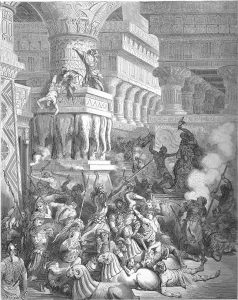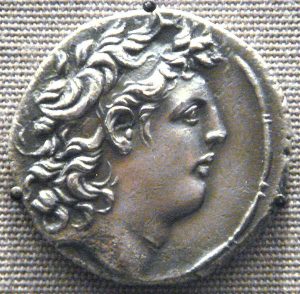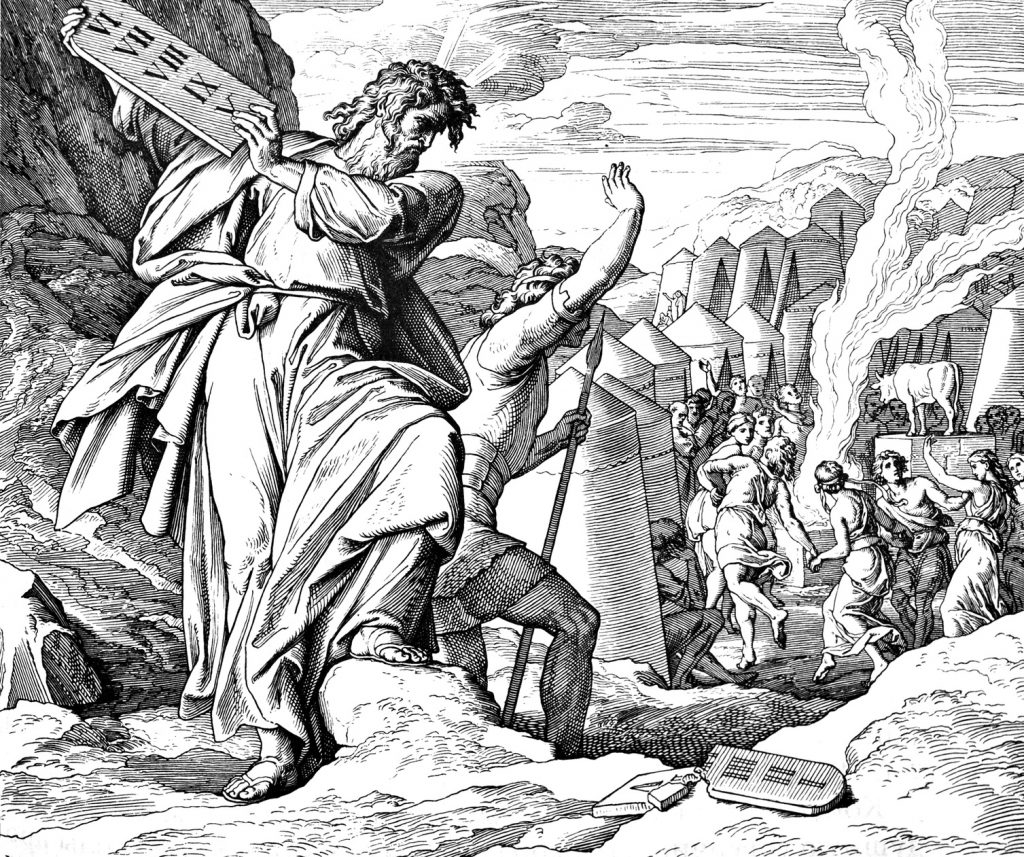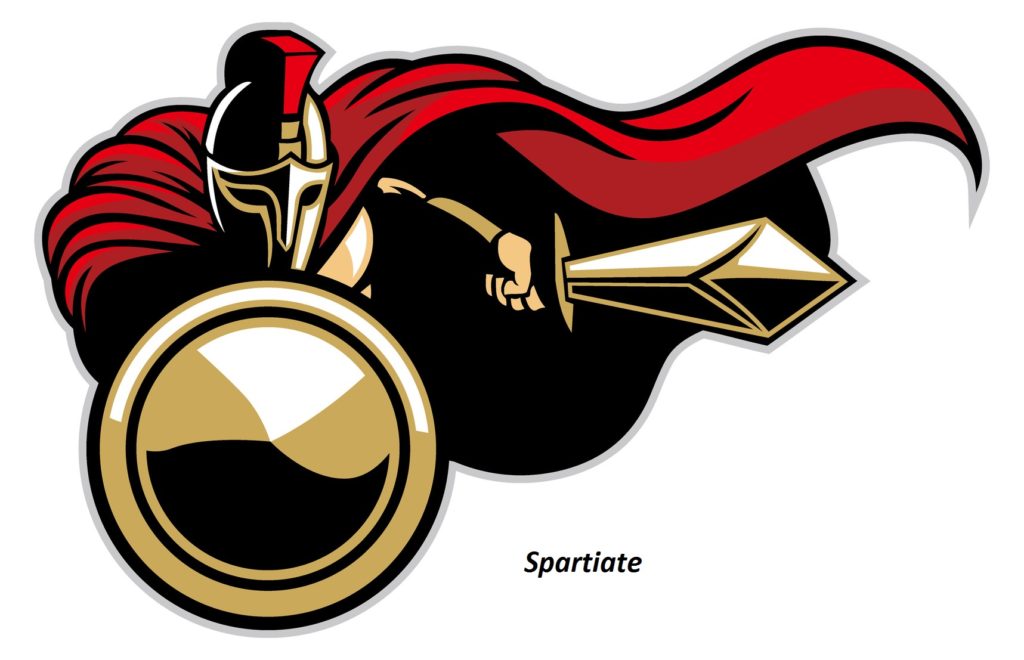
150 BC to 130 BC, Psalm 40: Maccabees.
This site was first built in French (see www.147thgeneration.net). The English translation was mainly done using « google translation ». We have tried to correct the result of this translation to avoid interpretation errors. However, it is likely that there are unsatisfactory translations, do not hesitate to communicate them to us for correction.
(for that click on this paragraph)
Summary
This generation is from the years 150 BC to 130 BC
According to our count, this generation is the 40th generation associated with Psalm 40. It is in this Psalm 40 that we therefore find an illustration of the facts of this generation.
On the Greek side, Alexander Epiphanes, the son of Antiochus Epiphanes, disputes the power of Demetrius. Demetrius then Alexander seeks to make alliance with Jonathan of the Hamonéeenne dynasty. The latter chooses Alexander. Alexander eliminates Demetrius and consolidates his alliance with Jonathan.
Demetrius ends up turning against Jonathan. This one seeks to make alliance with the Romans and the Spartans. The Spartans considering themselves as brothers of the Jews accept this alliance. Jonathan, victim of a ruse, is taken prisoner by the Greeks.
Simon brother of Jonathan takes over the leadership of the Jewish people to lead the fight.
Simon opposes Tryphon’s advance. He can not reach Jerusalem because of snowfall. He has Jonathan killed who was still a prisoner with him. Simon reached a peace agreement with Demetrius and definitively liberate Jerusalem.
Simon’s victory initiates a new period of peace and prosperity for the people of Israel.
Judea remains at peace throughout Simon’s life. He sought the happiness of his nation, and throughout his life his authority and the honor that surrounded him pleased the Jews. He brought peace to the land, and the people of Israel were very happy. Each lived in the shade of his vine or fig tree. He restored the Temple to its greatness and added many sacred objects to it.
The victory over the Greeks is also a victory against the last idolizing temptation for the Jewish people. It was defeated by the Maccabees and therefore the Jews will never again be seduced by idolatrous cults.
During this generation the rapprochement between the Jews and the Romans is made which will lead to the destruction of the Second Temple.
Talk
Alliances
On[3] the Greek side, Alexander Epiphanes, the son of Antiochus Epiphanes, disputes the power of Demetrius I Soter.
Demetrius I will then try to make a covenant with Jonathan. But suspicious Jonathan prefers to fortify Jerusalem. Alexander in turn asks Jonathan to become his ally, which he accepts despite the bidding of Demetrius I. Alexander eventually conquered and killed Demetrius I and concluded an alliance with Egypt by marrying Cleopatra daughter of Ptolemy and at the same time consolidating his alliance with Jonathan.
In 147 BC, Demetrius II arrives from Crete and seeks the confrontation with Jonathan. Jonathan defeats Demetrius II’ troops, first in Joppa, then in Ashdod and Ascalon. Ptolemy, who covets the kingdom of Alexander, denounces his alliance with him for the benefit of Demetrius II. Alexander flees and is killed.

Ptolemy did not take advantage of this victory because he died two days later, unlike Demetrius who became king. Jonathan then decides to attack the citadel of Jerusalem still in the hands of the Greeks and concludes the peace with Demetrius. Demetrius then looks for Jonathan’s alliance and military help, which he gets.
Jonathan frees Antioch but Demetrius returns on his commitments. Antiochus son of Alexander Epiphanes, supported by Tryphon, a former general of Demetrius I enters into confrontation with Demetrius (II). He fled. New alliance between Antiochus and Jonathan. Jonathan still has to fight Demetrius and is the winner of every confrontation.
Meanwhile he seeks to make alliance with the Romans and Spartans
The Spartans considering themselves brothers of the Jews accept this alliance.
Greek ruse
In his battles with Demetrius, Jonathan decides to reinforce the walls of Jerusalem but is taken prisoner during Tryphon’s ruse (Tryphon is a former supporter of Alexander, who has strong royal ambitions) that ambushes him and promises him peace.

Tryphon plans to take advantage of Jonathan’s detention to defeat the Jews:
- All[4] the nations round about sought to crush them. They said, “Now that they have no leader or helper, let us make war on them and wipe out their memory from the earth.”
Simon
But the calculation of Tryphon is skewed, Simon’s brother Jonathan takes over the leadership of the Jewish people to fight him:
- When[5] Simon heard that Trypho was gathering a large army to invade and ravage the land of Judah,
- and saw that the people were trembling with terror, he went up to Jerusalem. There he assembled the people
- and exhorted them in these words: “You know what I, my brothers, and my father’s house have done for the laws and the sanctuary; what battles and hardships we have seen.
- For the sake of this, for the sake of Israel, all my brothers have perished, and I alone am left.
- Far be it from me, then, to save my own life in any time of distress, for I am not better than my brothers.
- But I will avenge my nation and the sanctuary, as well as your wives and children, for out of hatred all the Gentiles have united to crush us.”
The reconquest of Jerusalem
Simon[6] opposes Tryphon’s advance. He can not reach Jerusalem because of snowfall. He has Jonathan killed who was still a prisoner with him. He also kills Antiochus to take his kingdom. Simon strengthens even more the cities of Judea. In 142 BC, Simon reached a peace agreement with Demetrius and attacked Ghezer, whose inhabitants surrendered and made peace with Simon. In the same way the last soldiers who occupied the citadel of Jerusalem surrender to Simon:
- They[7] (the soldiers of the Citadel of Jerusalem) finally cried out to Simon, and he gave them terms of peace. He expelled them from the citadel and cleansed it of impurities.
- On the twenty-third day of the second month in the one hundred and seventy-first year (June 4, 141 BC), the Jews entered the citadel with shouts of praise, the waving of palm branches, the playing of harps and cymbals and lyres, and the singing of hymns and canticles, because a great enemy of Israel had been crushed.
Demetrius is then taken prisoner during an expedition in Media. Simon’s victory marks a new period of peace and prosperity for the people of Israel.
The end of Seleucid oppression
These events that mark the end of the Seleucid oppression on the Jewish people and especially the end of the repeated profanations of the holy places in Jerusalem and the rest of Judea are well summarized in the beginning of the psalm of this generation:

- For the conductor, of David a song.
- I have greatly hoped for the Lord, …
- The faith of the Hasmoneans has never been faulted.
- … and He extended [His ear] to me and heard my cry.
- And He drew me up out of the roaring pit, from the thick mire, and He set my feet upon a rock, He established my steps.
- Simon has resettled his people in Jerusalem.
Simon’s success leads to the recognition of his people and respect among other peoples:
- The land [1] was at rest all the days of Simon, who sought the good of his nation. His rule delighted his people and his glory all his days.
- As his crowning glory he took Joppa for a port and made it a gateway to the isles of the sea.
- He enlarged the borders of his nation and gained control of the country.
- He took many prisoners of war and made himself master of Gazara, Beth-zur, and the citadel (Jerusalem). He cleansed the citadel of its impurities; there was no one to withstand him.
- The people cultivated their land in peace; the land yielded its produce, the trees of the field their fruit.
- Old men sat in the squares, all talking about the good times, while the young men put on the glorious raiment of war.
- He supplied the cities with food and equipped them with means of defense, till his glorious name reached the ends of the earth.
- He brought peace to the land, and Israel was filled with great joy.
- Every one sat under his vine and fig tree, with no one to disturb them.
- No attacker was left in the land; the kings in those days were crushed.
- He strengthened all the lowly among his people and was zealous for the law; he destroyed the lawless and the wicked.
- The sanctuary he made splendid and multiplied its furnishings.
This praise of Simon’s actions is well to be compared with the following verses of the psalm:

- He put a new song into my mouth, a praise to our God, so that many may see and fear, and trust in the Lord.
- Praiseworthy is the man who made the Lord his trust, and did not turn to the haughty and those who turn to falsehood.
- You have done great things, You, O Lord my God. Your wonders and Your thoughts are for us. There is none to equal You; were I to tell and speak, they would be too many to tell.
The end of the idolatrous temptation
To understand the rest of the psalm, one must go back to the time when the Jews were in the desert with Moses to receive the Torah.
The people [2] of Israel are summoned by God at the foot of Mount Sinai to listen to the Ten Commandments. Then the first series of laws transmitted by Moses who is the intermediary between God and his people. The people of Israel freely agreed to these new laws:
- And[8] to Moses He said, « Come up to the Lord, you and Aaron, Nadab and Abihu, and seventy of the elders of Israel, and prostrate yourselves from afar.
- And Moses alone shall approach the Lord but they shall not approach, and the people shall not ascend with him. »
- So Moses came and told the people all the words of the Lord and all the ordinances, and all the people answered in unison and said, « All the words that the Lord has spoken we will do. »
- And Moses wrote all the words of the Lord, and he arose early in the morning and built an altar at the foot of the mountain and twelve monuments for the twelve tribes of Israel.
- And he sent the youths of the children of Israel, and they offered up burnt offerings, and they slaughtered peace offerings to the Lord, bulls.
- And Moses took half the blood and put it into the basins, and half the blood he cast onto the altar.
- And he took the Book of the Covenant and read it within the hearing of the people, and they said, « All that the Lord spoke we will do and we will hear. »
The people of Israel then pledged themselves to listen to the divine laws, that is, to execute them. The ear is then an « organ » of submission to God.
What is illustrated by the continuation of the psalm:

- You desired neither sacrifice nor meal offering; You dug ears for me; a burnt offering or a sin offering You did not request.
Unfortunately[9], the people of Israel went astray when they did not see Moses coming down from the mountain. He asked Aaron to make them a god when God had just given the description of the tabernacle and ceremonial that the people of Israel had to implement to pay homage to him.
For this, Aaron removes from the people of Israel his earrings to design the golden calf, thus revealing symbolically the piercing of it. Piercing identical to that of Jews who have the choice of freedom prefers slavery (piercing the ears is also a punishment for those who want to remain enslaved in the Torah).
By the ears, the Jews had sanctified themselves by perceiving the divine message. By these same ears, they fell back by building an idol to which they sacrificed.
From pagan rites the Jews had deduced that a God could be satisfied only through sacrifices. They were not yet ripe enough to apprehend divine greatness apart from « burnt offerings and expiators. » This is why God has presumably introduced into the law a great number of precepts in this regard even if they have no real utility for God to approach his people.
However, the sin committed by the people of Israel in the desert is obviously serious since it occurs when God has really manifested himself to his people. To avoid divine wrath, Moses pleads for his people. It is at the end of the forty-day period during which Moses is with God that Moses interposes himself for his people. But for that, Moses had to react to the fault of his people:
- Moses[10] pleaded before the Lord, his God, and said: « Why, O Lord, should Your anger be kindled against Your people whom You have brought up from the land of Egypt with great power and with a strong hand?
- Why should the Egyptians say: ‘He brought them out with evil [intent] to kill them in the mountains and to annihilate them from upon the face of the earth’? Retreat from the heat of Your anger and reconsider the evil [intended] for Your people.
- Remember Abraham, Isaac, and Israel, Your servants, to whom You swore by Your very Self, and to whom You said: ‘I will multiply your seed like the stars of the heavens, and all this land which I said that I would give to your seed, they shall keep it as their possession forever.’ «
- The Lord [then] reconsidered the evil He had said He would do to His people.

But for this, Moses had to react to the fault of his people:
- in the camp, and let every man kill his brother, every man his friend, every man his kinsman.’ «
- Now[11] it came to pass when he drew closer to the camp and saw the calf and the dances, that Moses’ anger was kindled, and he flung the tablets from his hands, shattering them at the foot of the mountain.
By throwing the two tables of the law and breaking them, Moses accepted the destruction of the two Temples in exchange for the redemption of his people obtained on the fortieth day of his first retreat to God.
It is in response to this that, during the fortieth generation, the present generation, David, author of the psalm, remembers indirectly the facts relating to the golden calf.
Indeed, during these first forty generations of the night, the people of Israel were largely seduced by idolatrous cults and this from the first generation that followed the death of Solomon who himself had introduced this cult in Israel.
The last temptation was that of Greek idol worship, which many Jews followed seduced by Greek culture, clumsily assimilating Greek values and religion. This last idolatrous deviation has been vanquished by the Maccabees and therefore the Jews will never again be seduced by idolatrous cults.
Other dangers lie in wait for them, but no longer that one.
The Maccabees, when they fought against their fellow citizens seduced by the Greek cult, reproduced the salutary action of Moses when he commanded the Jews to expunge idolatry from their ranks:
- So[12] Moses stood in the gate of the camp and said: « Whoever is for the Lord, [let him come] to me! » And all the sons of Levi gathered around him.
- He said to them: « So said the Lord, the God of Israel: ‘Let every man place his sword upon his thigh and pass back and forth from one gate to the other in the camp, and let every man kill his brother, every man his friend, every man his kinsman.’ «
After the Greeks, the Romans
The reaction of Moses repeated a few centuries later by the Maccabees is well illustrated by the following psalm which proclaims the reaffirmation of the covenant between God and his people through the divine law:

- Then I said, « Behold I have come, » with a scroll of a book written for me.
- O God, I desired to do Your will and [to have] Your law within my innards.
- I brought tidings of righteousness in a great assembly. Behold, I will not withhold my lips, O Lord, You know.
- I did not conceal Your charity within my heart; I stated Your faith and Your salvation-I did not withhold Your kindness and truth-to a great assembly.
- You, O Lord, do not withhold Your mercies from me; may Your kindness and Your truth always watch me.
That David in this passage of the psalm claims once again divine protection is not trivial. If the Maccabees took over the oath of fidelity of Moses to the detriment of their lost brothers, they were also heirs to the agreement concluded by him with God. Namely the destruction of the two Temples which means the near destruction of the second Temple defended by the Maccabees.
It is thus naturally during this generation that the rapprochement between the Jews and the Romans makes the announcement of the introduction of those who will execute the deal concluded by Moses.
This explains why despite the victory of the Maccabees that could be illustrated happily, the tone of the end of the psalm is rather worrying because the arrival of the Romans in the horizon of the people of Israel heralds a painful aftermath.
This is what the end of the psalm expresses:

- For countless evils have encompassed me; my iniquities have overtaken me and I could not see [them because] they are more numerous than the hairs of my head, and my heart has forsaken me.
- O Lord, be willing to save me; O Lord, hasten to my help.
- May those who seek my soul to destroy it be shamed and embarrassed together; may those who seek to harm me retreat and be humiliated.
- May they be bewildered afterwards because of their shame, those who say about me, « Aha! Aha! »
- All who seek You shall exult and rejoice; those who love Your salvation shall constantly say, « May the Lord be magnified. »
- But I am poor and needy; may the Lord think of me. You are my help and my rescuer, my God; do not delay.

[1] 1 Maccabees, chapter 14, verses 4 to 15 (Praise of Simon).
Following: http://www.usccb.org/bible/1maccabees/14
[2] See Exodus, Chapter 20-23
[3] 1 Maccabees, Chapters 9, 10, 11 and 12.
[4] 1 Maccabees, chapter 12, verse 53
[5] 1 Maccabees, chapter 13, verses 1 to 6
[6] 1 Maccabees, Chapters 13
[7] 1 Maccabees, Chapters 13, verses 50 and 51
[8] Shemot – Exodus – Chapter 24, verses 1 to 7
[9] See Exodus, Chapter 24-31
[10] Shemot – Exodus – Chapter 32, verses 11 to 14
[11] Shemot – Exodus – Chapter 32, verse 19
[12] Shemot – Exodus – Chapter 32, verses 26 and 27

